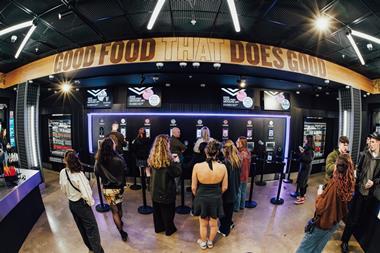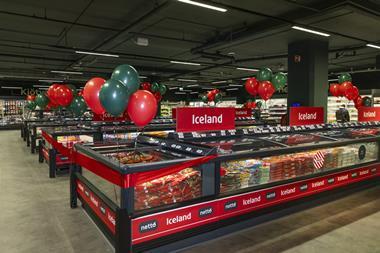Cash-strapped shoppers could soon be given respite from ever-increasing food prices as new forecasts suggest prices will start to fall again after March.
Agrifood consultancy EFFP says food price inflation will peak at 6% to 7% in the first quarter of 2011 compared with just under 5% now but will then fall slowly for the rest of the year and into 2012. By mid-2012, food price inflation will be back to about 3%, EFFP predicts, the same as before the crisis.
According to EFFP, food prices paid by consumers will go down even if prices for key commodities such as grain remain high. "The big downward pressure on prices will be consumer confidence and the state of the economy," said senior partner Siôn Roberts. "Consumer confidence is down, and the big public spending cuts haven't even started yet. In our view, this will make it trickier to pass on food price increases."
Although the price of oil had been going up the price of a barrel of Brent crude topped $100 for the first time since 2008 last week the percentage increase over recent months was much lower than the rises seen in 2008, with sterling also largely stable, he added.
The food price falls forecast by EFFP were based on the assumption that grain prices had broadly seen the biggest increase already wheat prices doubled in 2010 and that world markets would not be shaken this year by another commodity shock on the scale of Russia's wheat crisis, he said.
Despite its positive short-term forecast, EFFP believes the long-term trend for commodity prices is upward, however. "We believe there will be a paradigm shift in the next 30 years that will lead to food prices going up in real terms," said Roberts.
EFFP's forecasting model, developed with Cranswick School of Management, takes into account grain commodity prices, CPI inflation figures, oil prices and exchange rates to calculate likely food retail price movements.
Agrifood consultancy EFFP says food price inflation will peak at 6% to 7% in the first quarter of 2011 compared with just under 5% now but will then fall slowly for the rest of the year and into 2012. By mid-2012, food price inflation will be back to about 3%, EFFP predicts, the same as before the crisis.
According to EFFP, food prices paid by consumers will go down even if prices for key commodities such as grain remain high. "The big downward pressure on prices will be consumer confidence and the state of the economy," said senior partner Siôn Roberts. "Consumer confidence is down, and the big public spending cuts haven't even started yet. In our view, this will make it trickier to pass on food price increases."
Although the price of oil had been going up the price of a barrel of Brent crude topped $100 for the first time since 2008 last week the percentage increase over recent months was much lower than the rises seen in 2008, with sterling also largely stable, he added.
The food price falls forecast by EFFP were based on the assumption that grain prices had broadly seen the biggest increase already wheat prices doubled in 2010 and that world markets would not be shaken this year by another commodity shock on the scale of Russia's wheat crisis, he said.
Despite its positive short-term forecast, EFFP believes the long-term trend for commodity prices is upward, however. "We believe there will be a paradigm shift in the next 30 years that will lead to food prices going up in real terms," said Roberts.
EFFP's forecasting model, developed with Cranswick School of Management, takes into account grain commodity prices, CPI inflation figures, oil prices and exchange rates to calculate likely food retail price movements.













No comments yet